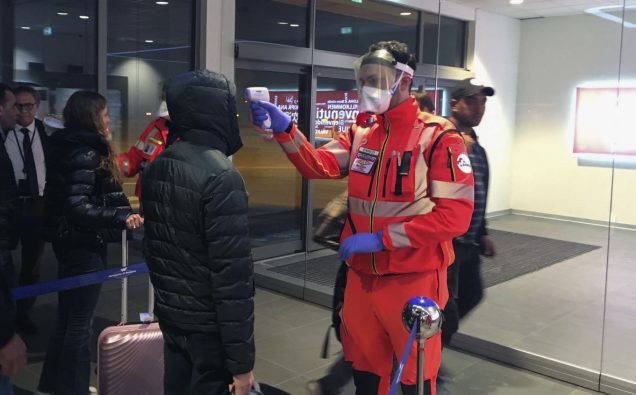
April was the cruelest month in terms of global outbreak of COVID-19, with a daily average of 80,000 new cases piling up the on the health crisis.
“But these are not just numbers – every single case is a mother, a father, a son, a daughter, a brother, sister or friend”, said Tedros Adhanom Ghebreyesus, Director-General of the World Health Organization as coronavirus infections continue to rise at several places.
According to the latest WHO figures, the global caseload for COVID-19 has surpassed 3.5 million, with nearly 250,000 deaths.
Although numbers are declining in Western Europe, WHO says more cases are being reported every day from Eastern Europe, Africa, South-East Asia, the Eastern Mediterranean and the Americas.
While some countries are reporting an increase in COVID-19 cases over time, many have seen caseloads rise because they have ramped up testing, the health officials explained.
“It’s not good in terms of seeing cases, in terms of transmission, but I don’t want to equate that with something (being) wrong” said Dr. Maria van Kerkhove of WHO’s Emerging Diseases and Zoonoses Unit.
“I want to equate that with countries are working very hard to increase their ability to find the virus, to find people with the virus, to have testing in place to identify who has COVID-19, and…putting into place what they need to do to care for those patients.”
Dr. Michael Ryan noted it remains difficult to determine whether the situation in any region is improving or not, though countries with existing humanitarian crises are a concern, such as Afghanistan, Sudan, Syria, Yemen and Haiti.
“We need to focus on ensuring that the most vulnerable people in the world get prioritized assistance in this response”, said Dr. Ryan, WHO’s Executive Director
As countries press forward in the common fight against COVID-19, Tedros said they should also lay the groundwork for resilient health systems globally.
"Importantly, the framework takes a “health first” approach, recognizing that strong and resilient health systems must be the foundation of recovery in all countries"-@DrTedros #COVID19
— World Health Organization (WHO) (@WHO) May 6, 2020
“The COVID-19 pandemic will eventually recede, but there can be no going back to business as usual”, he stated, according to a UN account of his viritual Press Conference.
“We cannot continue to rush to fund panic but let preparedness go by the wayside”.
The ongoing crisis has underscored the importance of strong national health systems as the foundation of global health security.
“If we learn anything from COVID-19, it must be that investing in health now will save lives later”, he said.
Currently, the world spends around $7.5 trillion on health annually, WHO believes the best investments are in promoting health and preventing disease.
“Prevention is not only better than cure, it’s cheaper, and the smartest thing to do.”


















I do not regret that spent a few of minutes for reading. Write often, yet surely’ll come to read something new.